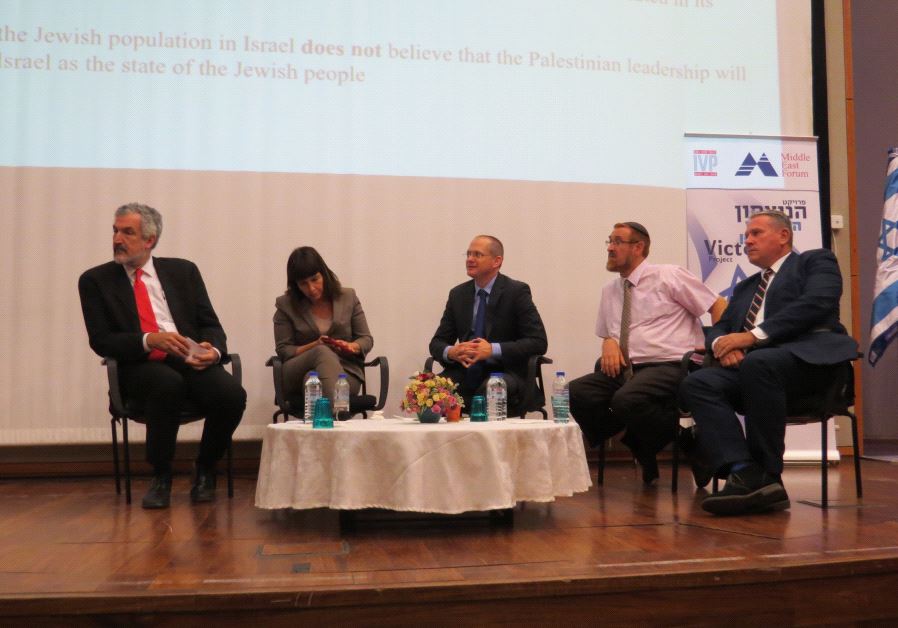US think tank to launch 1 million NIS fund for Israeli victory
At a Middle East Forum event, experts explain that a new approach to the Israeli-Palestinian conflict is needed.
 A panel of experts speak at the Middle East Forum's event at the Begin Center, July 2017(photo credit: MIDDLE EAST FORUM)Updated:
A panel of experts speak at the Middle East Forum's event at the Begin Center, July 2017(photo credit: MIDDLE EAST FORUM)Updated: